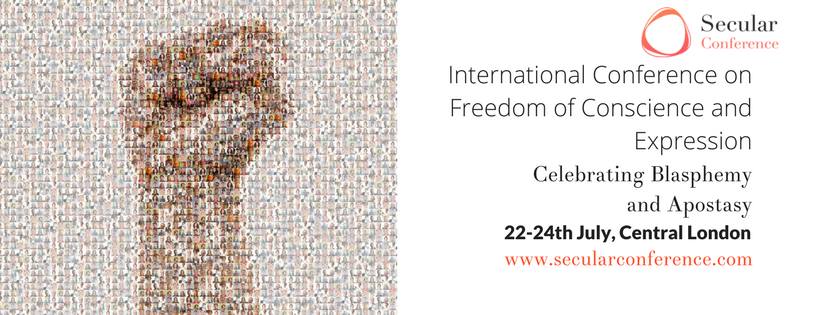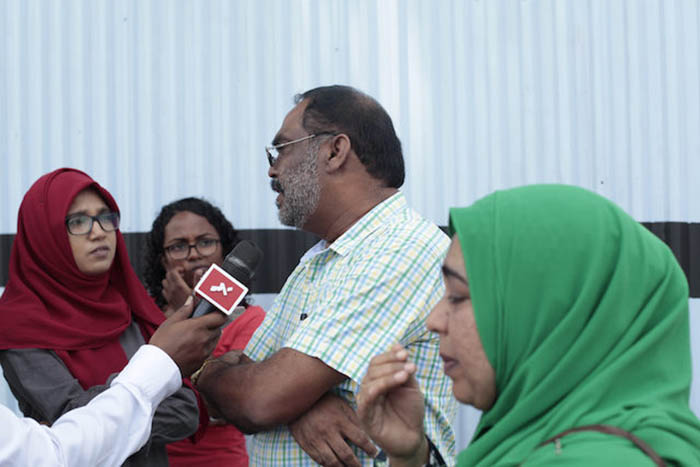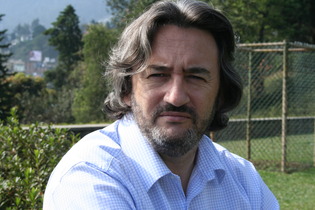12 May 2017 | Events
[vc_row][vc_column][vc_column_text]
Join notable free-thinkers from around the world for a weekend of discussions and debates on freedom of conscience and expression in the 21st century at a spectacular venue in central London during 22-23 July 2017.
On 24 July, an activist strategy meeting will be followed by body-painting in support of ex-Muslims, which will be open to the public.
The two-day conference will discuss censorship and blasphemy laws, freedom of and from religion, apostasy, the limits of religion’s role in society, LGBT and women’s rights, atheism, secular values and more.
Speakers from countries or the Diaspora as diverse as Afghanistan, Algeria, Bangladesh, Canada, Egypt, France, India, Iran, Iraq, Iraqi Kurdistan, Ireland, Lebanon, Malaysia, Morocco, Nigeria, Norway, Pakistan, Palestinian Territories, Poland, Saudi Arabia, Sudan, Sweden, Switzerland, Syria, Turkey, Tunisia, UK, Ukraine, US and Yemen will gather in London to defend freedom of conscience and expression and argue that freedoms are not western but universal.
The conference will highlight the voices of people on the frontlines of resistance – many of them persecuted and exiled – as well as address challenges faced by activists and freethinkers, elaborate on the links between democratic politics and free expression and conscience, promote secular and rights-based alternatives, and establish priorities for collective action.
Art and culture will be integral to the event as will lively debate with the dauntless use of the free word.
Full schedule: http://www.secularconference.com/agenda-2017/
Confirmed Distinguished Speakers:
A C Grayling, Philosopher
Aliaa Magda Elmahdy, Egyptian Feminist Activist
Alya Al-Sultani, British-Iraqi Vocalist and Composer
Ani Zonneveld, Founder and President of Muslims for Progressive Values
Annie Laurie Gaylor and Dan Barker, Co-Presidents of the Freedom From Religion Foundation
Armin Navabi, Founder of Atheist Republic
Asher Fainman, President of Goldsmiths Atheist Society
Benjamin David, Editor-in-Chief of Conatus News
Bonya Ahmed, Activist, Writer and Blogger at Mukto-Mona
Cemal Knudsen Yucel, Co-Founder and Chair of Ex-Muslims of Norway
Chris Moos, Secular Activist
Damon Conlan and Neil Edwards, Magicians
Dave Silverman, President of American Atheists
Deeyah Khan, Filmmaker
Djemila Benhabib, Author and Activist
Elham Manea, Yemeni-born Author and Human Rights Campaigner
Fariborz Pooya, Bread and Roses TV Presenter and Editor
Fauzia Ilyas, Founder of Atheist & Agnostic Alliance Pakistan
Gina Khan, One Law for All Spokesperson
Gita Sahgal, Director of Centre for Secular Space
Gona Saed, Co-Founder of Kurdistan Secular Centre
Gurpreet Kaur Bhatti, Award-winning Playwright
Halima Begum, Ex-Muslim Feminist Researcher and Blogger
Hassan Radwan, Agnostic Muslim Khutbahs blog
Houzan Mahmoud, Culture Project Co-Founder
Imad Iddine Habib, Founder of Council of Ex-Muslims of Morocco
Inna Shevchenko, FEMEN Leader
Iram Ramzan, Journalist and Founder of Sedaa
Ismail Mohamed, Egyptian Atheist and Founder of Black Ducks Talk Show
Jane Donnelly and Michael Nugent, Atheist Ireland’s Human Rights Officer and Chairperson
Jodie Ginsberg, CEO of Index on Censorship
Karima Bennoune, UN Special Rapporteur in the Field of Cultural Rights
Karrar D. Al Asfoor, Co-founder of Atheist Alliance Middle East and North Africa
Kate Smurthwaite, Comedian
Kenan Malik, Author and Broadcaster
London Humanist Choir
Maajid Nawaz, Founding Chairman of Quilliam Foundation
Marieme Helie Lucas, Algerian Sociologist and Founder of Secularism is a Women’s Issue
Mario Ramadan, Co-Founder of Freethought Lebanon
Maryam Namazie, Iranian-born Rights Activist, Writer and Conference Organiser
Nadia El Fani, Tunisian Filmmaker
Nasreen Rehman, Co-Founder and Chair of British Muslims for Secular Democracy
Nina Sankari, Polish Atheist Activist
Noura Embabi, Muslim-ish President
Peter Tatchell, Human Rights Campaigner
Pragna Patel, Director of Southall Black Sisters
Rana Ahmad, Head of the RDF Arab Atheist Community
Rayhana Sultan, ExMuslimBecause
Richard Dawkins, Author and Scientist (subject to availability)
Sadia Hameed, Spokesperson of the Council of Ex-Muslims of Britain
Sanal Edamaruku, Founder and President of Rationalist International
Sarah Haider, Co-Founder of Ex-Muslims of North America
Sarah Peace, Nigerian Artist and Director of Fireproof Library
Savin Bapir Tardy, Counselling Psychologist for The Iranian and Kurdish Women’s Rights Organisation
Shabana Rehman, Performance Artist and Human and Animal Rights Advocate
Shelley Segal, Singer/Songwriter
Tasneem Khalil, Swedish-Bangladeshi Journalist and Editor of Independent World Report
Teresa Gimenez Barbat, MEP, Group of the Alliance of Liberals and Democrats for Europe and Euromind
Victoria Gugenheim, Award-winning Body Artist
Waleed Al Husseini, Palestinian Writer and Founder of Council of Ex-Muslims of France
Yasmine Mohammed, Confessions of an ExMuslim
Yasmin Rehman, Women’s Rights Campaigner
Zehra Pala, President of Atheism Association of Turkey
Zineb El Rhazoui, Moroccan-born Columnist for Charlie Hebdo
Speaker biographies available here: http://www.secularconference.com/speakers-2017/
For more information, contact Maryam Namazie, [email protected].uk.
The conference is sponsored by: Alliance of Liberals and Democrats for Europe; Atheist International Alliance; Bread and Roses TV; Center for Inquiry; Centre for Secular Space; Council of Ex-Muslims of Britain; Culture Project; Euromind; Equal Rights Now; Fitnah; Freedom from Religion Foundation; National Secular Society; One Law for All; Richard Dawkins Foundation for Reason and Science; Southall Black Sisters; and Secularism is a Women’s Issue.[/vc_column_text][/vc_column][/vc_row][vc_row][vc_column][vc_column_text]
When: 22-24 July
Where: Central London
Tickets: From £65 via Secular Conference No tickets will be sold at the door.
[/vc_column_text][/vc_column][/vc_row]
12 May 2017 | Asia and Pacific, Campaigns -- Featured, Maldives, Statements
[vc_row][vc_column][vc_column_text]

Yameen Rasheed’s family submit a petition to Maldives Police Services to investigate his murder.
Your Excellency,
The undersigned civil society organisations write to you to condemn in the strongest terms the murder of internationally recognised Maldivian blogger Yameen Rasheed. We call on the government to take all necessary measures to ensure that the perpetrators of this heinous crime are brought to justice and to end the cycle of impunity for attacks on journalists, bloggers, and human rights defenders that has taken root in the Maldives.
Yameen Rasheed was an impassioned critic who reported on issues related to corruption, radicalism, and impunity, mainly through his popular blog The Daily Panic. In 2015, IFEX helped to support Yameen to speak out on these issues at the UN Human Rights Council in Geneva. His witty and relentless condemnation of systemic injustice earned him praise but also drew the attention of religious extremists and government officials who felt threatened by his social and political commentary.
Yameen Rasheed had reported numerous death threats before his attack. The police refused to act on any of his complaints. Reports since his killing suggest that the crime scene had been tampered with before a thorough review of evidence could be carried out. Furthermore, the family of Yameen Rasheed has reported harassment by local police who sought to prevent them from making public calls for justice for the death of their son. Such troubling reports raise doubts about the authorities’ commitment to ensure that a proper investigation takes place.
Yameen’s case is emblematic of the growing intolerance for ideas and opinions that challenge the role of religion in society throughout South Asia. Similar to countries like Pakistan and Bangladesh, in the Maldives, harassment of individuals that promote moderate or secular views has been common, and is justified by both militant criminal groups and sympathetic politicians on the grounds that these ideas are “un-Islamic.”
Yameen is one of three recent high-profile cases of attacks on media personnel in the Maldives over the past five years. In 2012 Ismail Rasheed, a freelance journalist and human rights campaigner, barely survived after having his throat slit near his home in the Maldivian capital, Malé. In 2014, Ahmed Rilwan, journalist for Minivan News, was abducted from his office and remains missing to this day. Rilwan was a close friend of Yameen’s, and much of Yameen’s work was focused on finding justice for Rilwan’s abduction. In all cases there has been a lack of adequate police investigation and response.
There are further causes for concern in the broader Maldivian free expression environment. The country ranks 117th out of 180 countries in Reporters Without Borders’ 2017 Press Freedom Index, due in large part because of restrictive laws such as the 2016 “Protection of Reputation and Good Name and Freedom of Expression Bill”, which criminalises defamation based on an overly broad definition of the offence. Public threats have frequently been issued against independent media by politicians, criminal gangs and religious extremists and have helped to create a climate of hostility that has led to self-censorship. Imprisonment of journalists and activists is also a common tactic used to silence critical voices.
Yameen Rasheed’s death should serve as a strong indicator of the need for immediate steps to protect space for dissent and debate in the Maldives, space that is threatened by draconian laws and impunity for attacks committed against individuals expressing controversial or adversarial opinions. As such, we call on the government to take the following measures:
• Ensure that a timely, thorough, and transparent investigation into the killing of Yameen Rasheed takes place and all perpetrators of this crime against freedom of expression are brought to justice. Similar action should be taken in the cases of Ismail Rasheed and Ahmed Rilwan;
• Investigate and hold accountable all those who make threats or incite violence against journalists, bloggers, and human rights defenders, as well as against the family of Yameen Rasheed;
• Amend or repeal laws that create disproportionate and unnecessary limits to legitimate expression, according to standards specified in Article 19 of the International Covenant on Civil and Political Rights, ratified by the Maldives in 2006;
• Implement legislation and other measures to create a safe and enabling environment for journalists and human rights defenders, according to relevant recommendations accepted by the Maldives during its 2nd cycle Universal Periodic Review (UPR);
• Improve independence of the judiciary and build technical capacity of the police force through international assistance and other reforms, as agreed to by the Maldives during its 2nd cycle UPR.
Signed,
Bytes for All
Adil Soz – International Foundation for Protection of Freedom of Speech
Afghanistan Journalists Center
ARTICLE 19
Association for Media Development in South Sudan
Bahrain Center for Human Rights
Cambodian Center for Human Rights
Canadian Journalists for Free Expression
Center for Media Freedom and Responsibility
Committee to Protect Journalists
Foundation for Press Freedom – FLIP
Freedom Forum
Free Media Movement
Global Voices Advox
Globe International Center
Human Rights Network for Journalists – Uganda
Index on Censorship
Institute of Mass Information
International Federation of Journalists
International Press Centre
International Publishers Association
MARCH
Media, Entertainment and Arts Alliance
Media Institute of Southern Africa
Pakistan Press Foundation
Palestinian Center for Development and Media Freedoms – MADA
PEN American Center
PEN Canada
PEN International
Reporters Without Borders
Vigilance pour la Démocratie et l’État Civique
Asian Forum for Human Rights and Development
Awaz Foundation Pakistan, Centre for Development Services
Banglar Manabadhikar Suraksha Mancha
Bangladesh Manobadhikar Sangbadik Forum
Center for Social Activism
Center for Media Research – Nepal
Commonwealth Human Rights Initiative
FIDH, in the framework of the Observatory for the Protection of Human Rights Defenders
Front Line Defenders
Free Press Unlimited
Maldivian Democracy Network
Peoples’ Vigilance Committee on Human Rights
People’s Watch India
Pakistan NGOs Forum
Programme Against Custodial Torture and Impunity
South Asian Women in Media – Sri Lanka
South India Cell for Human Rights Education and Monitoring
World Organisation Against Torture (OMCT), in the framework of the Observatory for the Protection of Human Rights Defenders[/vc_column_text][/vc_column][/vc_row][vc_row][vc_column][vc_basic_grid post_type=”post” max_items=”4″ element_width=”6″ grid_id=”vc_gid:1494603115837-be75a009-7c8a-9″ taxonomies=”9143, 4002, 8875, 9028″][/vc_column][/vc_row]
18 Apr 2017 | Awards, Awards Update, Digital Freedom, News and features, Youth Board
[vc_row][vc_column][vc_column_text]
Fergal Keane is a journalist who made his name as a war reporter at the end of millennium, covering conflicts from Congo and Rwanda to Kosovo. In 2003, the Index on Censorship recognised his efforts with their award for Outstanding Commitment to Journalism Integrity. It wasn’t Keane’s first award, and it wasn’t his last either. On top of his Orwell Prize (1996) and Amnesty International Press Award (1993) and Television Prize (1994), his OBE and his BAFTA (both from 1997), Keane has since added a Sony Gold award in 2009, for his inspiring Radio 4 series ‘Taking a Stand’, and the Ireland Funds Literary Award in 2015.
In 2004, following decades in the profession, Keane made the decision to stop entering active war zones. “I couldn’t justify potentially robbing my children of a father,” he told the Daily Telegraph in 2010. “I couldn’t do it anymore.” But despite a slight career shift, Keene continues his commitment to journalism and justice just as fervently. He is now a special correspondent for the BBC, still writing and broadcasting on topics like the refugee crisis, the Yemen conflict and the South Sudan civil war – though sometimes from afar – as well as often being dispatched to the latest scenes of terrorism in Europe, whether France, Belgium or Germany. Wherever he is, he retains an insight and awareness of historical context that few can match.
Beyond the BBC, he is also the author of several well-received books and in 2011 he received an honorary degree from the University of Liverpool, where he is now three years into a Professorial Fellowship. He is part of the university’s Institute of Irish Studies, teaching students on the Understanding Conflict masters programme.
Speaking to the university’s website in 2015, Fergal criticised the “endlessly reductive” mainstream press and urged his students to “always challenge your opinions with facts, every day of your life. You will only know what your opinions are worth if they are taken out of the box and subjected to the most severe tests. Facts, facts, facts.”
Not all Keane’s work is confined to journalism, however. In 2005, he founded Msaada, an NGO dedicated to assisting Rwandans – and Rwandan society – to recover from the 1994 genocide, through meaningful, income-generating projects. It continues to support such projects today.
Samuel Earle is a member of Index on Censorship’s Youth Advisory Board. He is a freelance writer and recent masters graduate from the London School of Economics and Political Science, where he studied Political Theory. He lives in Paris.[/vc_column_text][/vc_column][/vc_row][vc_row][vc_column width=”1/2″][vc_single_image image=”85476″ img_size=”full” alignment=”center” onclick=”custom_link” link=”https://www.indexoncensorship.org/2016/11/awards-2017/”][/vc_column][vc_column width=”1/2″][vc_column_text]
Index on Censorship Freedom of Expression Awards
Seventeen years of celebrating the courage and creativity of some of the world’s greatest journalists, artists, campaigners and digital activists
2001 | 2002 | 2003 | 2004 | 2005 | 2006 | 2007 | 2008 | 2009 | 2010 | 2011 | 2012 | 2013 | 2014 | 2015 | 2016 | 2017[/vc_column_text][/vc_column][/vc_row][vc_row][vc_column][vc_basic_grid post_type=”post” max_items=”12″ style=”load-more” items_per_page=”4″ element_width=”6″ grid_id=”vc_gid:1492505799978-a5ad6490-9f12-5″ taxonomies=”4881, 8935″][/vc_column][/vc_row]



